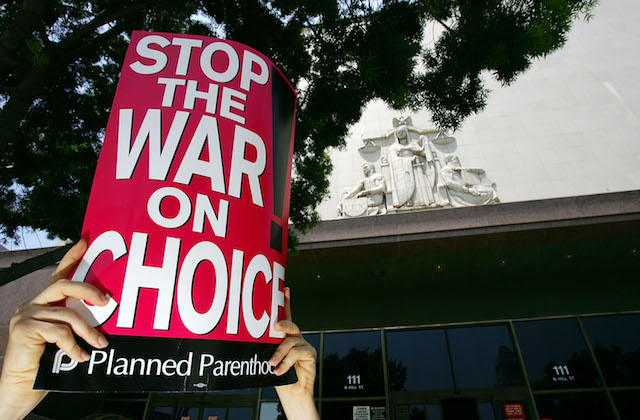Less than two weeks before the abortion “gag rule” was scheduled to go into effect across the United States, a federal judge has temporarily blocked it.
Yesterday (April 23), Judge Michael McShane in the U.S. District Court for the District of Oregon granted a preliminary injunction against the federal restrictions set to begin on May 3, calling it was a “ham-fisted approach to public health policy,” according to a report from The Oregonian.
On March 4, the Trump administration published a rule in the Federal Register that reproductive rights advocates call a domestic “gag rule.” The new regulation changes the conditions under which health care providers can receive federal money via Title X, the federal family planning program established in 1970. Per the rule, providers would be able to discuss abortion with patients, but would be barred from saying where one can be obtained. Clinics would also be allowed to omit abortion from conversations with pregnant people who are weighing their options, whereas previously a clinic could not receive federal funding unless all options were discussed.
The same day the rule was published, a coalition of 21 state attorneys general announced a lawsuit to block it from being instituted. One day later, Planned Parenthood Federation of America—which serves 41 percent of all patients receiving care under Title X, the majority of whom are people of color—and the American Medical Association joined the lawsuit, arguing that the requirement would violate patients’ rights, force doctors to withhold information and harm the approximately 4 million patients who depend on Title X.
Per The Oregonian:
rnt
The judge also found that it would create a class of low-income women who couldn’t receive a full range of medical care options, foster a “geographic vacuum” in reproductive health care clinics and likely cause an increase in abortions due to more unwanted pregnancies.
t
He said the rule, which is set to go into effect May 3, represents an “arrogant assumption” that government is better suited to direct health care instead of providers.
As Reuters reports, it is not clear how wide-sweeping yesterday’s ruling will be. The judge said that he is reluctant to set national health care policy, and he will clarify the scope of the decision in a formal written opinion, to be released soon.
In addition to the injunction, McShane also granted a preliminary injunction to the “separation'” rule that prevents federally funded family planning clinics from offering any services in the same location where abortions are provided.
McShane also said that the federal government had not provided data, reports The Oregonian, “to counter medical experts’ assertions that restricting medical professionals from discussing all reproductive health options with patients would result in increases in unwanted pregnancies, use of ineffective contraceptives and increases in sexually transmitted diseases and HIV.”
While the victory may only be temporary—and perhaps geographically restricted—reproductive rights advocates see it as a positive development. Leana Wen, president of Planned Parenthood, said in a statement: “While this is a victory for patients and doctors, this relief is preliminary and we will continue to fight the Trump-Pence administration in court and in Congress to ensure our patients’ health and rights are protected.”
